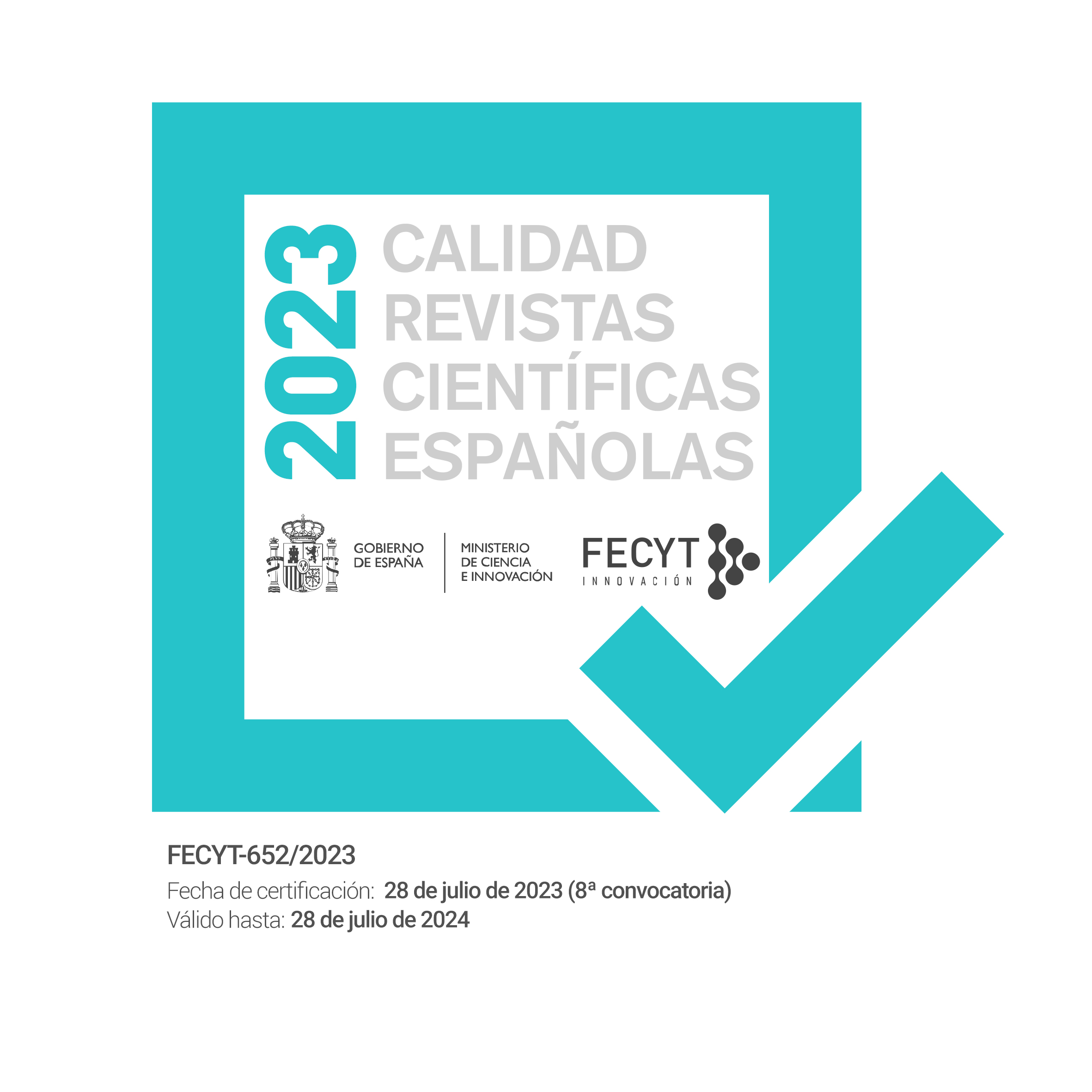El programa minimalista y los adjetivos modificadores del nombre en la alternancia lingüística español-inglés
Resumen
Resumen
Han sido varios los análisis lingüísticos propuestos para las construcciones con adjetivos modificadores del nombre en contextos con alternancia lingüística. Pero estos análisis siempre hacen uso de mecanismos externos a las lenguas implicadas y resultan inadecuados desde un punto de vista empírico. Con este trabajo pretendemos mostrar que no existen mecanismos específicos de la alternancia lingüística, y que este fenómeno sólo está limitado por los requisitos léxicos de las lenguas en contacto, de la misma forma que se explican las frases monolingües en el programa minimalista propuesto por Chomsky (1995). Bajo esta óptica, analizamos las construcciones nominales que contienen un adjetivo y un nombre en datos con alternancia lingüística español-inglés, basándonos en las distintas propiedades de los rasgos flexivos que caracterizan a los adjetivos en español e inglés, y más concretamente, basándonos en su especificación como fuerte o débil, lo cual determinará el tipo de alternancia que puede ocurrir.
Palabras clave: alternancia lingüística (AL); programa minimalista (PM); adjetivo (A); frase nominal (FN); español-inglés
Abstract
Several linguistic analyses have been proposed for nominal constructions including adjectives modifying nouns in codeswitching, but they always make use of mechanisms external to the languages involved and are inadequate from an empirical point of view. This work aims at showing that there are no specific constraints on codeswitching, and that this phenomenon is only ruled by the lexical requirements of the languages in contact, in the same way that monolingual phrases are explained according to the minimalist program proposed by Chomsky (1995). In this light, I analyse the nominal constructions consisting of an adjective plus noun in Spanish-English codeswitching data, building on the different properties of the inflectional features that characterise the adjectives in Spanish and English and, more specifically, on their specification as strong or weak, which will determine the types of codeswitching that occur.
Keywords: codeswitching (CS); minimalist program (MP); adjective (A); noun phrase (NP); Spanish-English
Citas
Abney, S. P. (1987). The English Noun Phrase in its Sentential Aspect. Tesis Doctoral, MIT, EE.UU.
Aguirre, A. (1976). Acceptability Judgements of Code-Switching Phrases by Chicanos: Some Preliminary Findings. ERIC Document ED 129 122, Springfield, Virginia.
Belazi, H., Rubin, E. y Toribio, A. (1994). Code switching and X-bar theory: the functional head constraint. Linguistic Inquiry, 25, 221-237.
Bentahila, A. y Davies, E. (1983). The syntax of Arabic-French code-switching. Lingua, 59, 301-330.
Bernstein, J. (1991). Nominal enclitics in Romance. MIT Working Papers in Linguistics, 14, 51-66.
Bokamba, E.G. (1988). Code-mixing, language variation, and linguistic theory: evidence from Bantu languages. Lingua, 76, 21-62.
Bosque, I. (1993). Sobre las diferencias entre los adjetivos relacionales y los calificativos. Revista Española de Lingüística, 9, 9-48.
Bosque, I. y Picallo, C. (1996). Postnominal adjectives in Spanish DPs. Linguistics, 32, 349-385.
Cantone, K. F. y MacSwan, J. (2009). Adjectives and word order: a focus on Italian-German codeswitching. En L. Isurin, D. Winford y K. de Bot (Eds.), Multidisciplinary Approaches to Code Switching (pp. 243–277). Amsterdam: John Benjamins.
Chomsky, N. (1957). Syntactic Structures. La Haya: Mouton.
Chomsky, N. (1965). Aspects of the Theory of Syntax. Cambridge, Massachusetts: The MIT Press.
Chomsky, N. (1981). Lectures on Government and Binding. Cambridge, Massachusetts: The MIT Press.
Chomsky, N. (1993). A minimalist program for linguistic theory. En K. Hale y S. J. Kayser (Eds.), The View from Building 20 (pp. 1-52). Cambridge, Massachusetts: The MIT Press.
Chomsky, N. (1995). The Minimalist Program. Cambridge, Massachusetts: The MIT Press.
Cinque, G. (2010). The Syntax of Adjectives: A Comparative Study. Cambridge, Massachusetts: The MIT Press.
Clyne, M. (1987). Constraints on code-switching: how universal are they? Linguistics, 25, 739-764.
Demonte, V. (1999). El adjetivo: clases y usos. La posición del adjetivo en el sintagma nominal. En I. Bosque y V. Demonte (Eds.), Gramática descriptiva de la lengua española (pp. 129 -215). Madrid: Espasa Calpe.
Di Sciullo, A. M., Muysken, P. y Singh, R. (1986). Government and code-mixing. Journal of Linguistics, 22, 1-24.
Huybregts, M. y Boeschoten, H. (1999). Minimalist code-switching can do without switching codes. Comunicación presentada en el Second International Symposium on Bilingualism. Newcastle upon Tyne, Reino Unido. 14–17 abril.
Joshi, A. (1985). Tree adjoining grammars: how much context-sensitivity is required to provide reasonable structural descriptions? En D.R. Dowty, L. Kartunen y A.M. Zwycky (Eds.), Natural Language Parsing. Psychological, Computational and Theoretical Perspectives (pp. 206-250). Cambridge: Cambridge University Press.
Kayne, R. S. (1994). The Antisymmetry of Syntax. Cambridge, Massachusetts: The MIT Press.
Kroch, A. (1989). Asymmetries in long-distance extraction in a tree-adjoining grammar. En M.R. Baltin y A.S. Kroch (Eds.), Alternative Conceptions of Phrase Structure (pp. 66-98). Chicago: Chicago University Press.
Lipski, J. M. (1985). Linguistic Aspects of Spanish-English Language Switching. Tempe, Arizona: Arizona State University.
Lorenzo, G. (1995). Geometría de las estructuras nominales: sintaxis y semántica del SDet. Oviedo: Servicio de Publicaciones de la Universidad de Oviedo.
Mahootian, S. (1993). A Null Theory of Codeswitching. Tesis Doctoral, Northwestern University, EEUU.
MacSwan, J. (1999). A Minimalist Approach to Intrasentential Code-Switching. New York: Garland.
MacSwan, J. (2014). Programs and proposals in codeswitching research: unconstraining theories of bilingual language mixing. En J. MacSwan (Ed.), Grammatical Theory and Bilingual Codeswitching (pp. 1-33). Cambridge, Massachusetts: The MIT Press.
McClure, E. (1977). Aspects of code-switching in the discourse of bilingual Mexican- American children. En M. Saville-Troike (Ed.), Linguistics and Anthropology (pp. 93-115). Washington, DC: Georgetown University Press.
Moro, M. (2014). The Semantic interpretation and syntactic distribution of determiner phrases in Spanish-English codeswitching. En J. MacSwan (Ed.), Grammatical Theory and Bilingual Codeswitching (pp. 213-226). Cambridge, Massachusetts: The MIT Press.
Moyer, M. G. (1992). Analysis of Code-Switching in Gibraltar. Tesis Doctoral, Universidad Autónoma de Barcelona.
Myers-Scotton, C. (1993). Duelling Languages: Grammatical Structure in Codeswitching. Oxford: Oxford University Press.
Nishimura, M. (1997). Japanese/English Code-Switching: Syntax and Pragmatics. New York: Peter Lang.
Pandit, I. (1990). Grammaticality in code switching. En R. Jacobson (Ed.), Codeswitching as a Worldwide Phenomenon (pp. 33-69). New York: Peter Lang.
Poplack, S. (1980). Sometimes I’ll start a sentence in Spanish y TERMINO EN ESPAÑOL: toward a typology of code-switching. Linguistics, 18, 581-618.
Sankoff, D., Poplack, S. y Vanniarajan, S. (1991). The empirical study of code-switching. En Proceedings of the Symposium on Code-Switching and Bilingual Studies: Theory, Significance and Perspectives (pp. 181-206). Strasbourg: The European Science Foundation.
Santorini, B. y Mahootian, S. (1995). Codeswitching and the syntactic status of adnominal adjectives. Lingua, 96, 1-27.
Stowell, T. (1981). Origins of Phrase Structure. Tesis Doctoral, MIT, EE.UU.
Tió, S. (1991). Lengua Mayor. Madrid: Editorial Plaza Mayor.
Valois, D. (1991). The internal syntax of DP and the A placement in French and English. Proceedings of NELS, 21, 367-381.
Woolford, E. (1983). Bilingual code-switching and syntactic theory. Linguistic Inquiry, 14, 520-536.
Descargas
Publicado
Número
Sección
Licencia
Reconocimiento – No comercial (CC BY-NC). Bajo esta licencia el usuario puede copiar, distribuir y exhibir públicamente la obra y puede crear obras derivadas siempre y cuando estas nuevas creaciones reconozcan la autoría de la obra original y no sean utilizadas de manera comercial.
Los autores retienen todos sus derechos de publicación y copyright sin restricciones.









